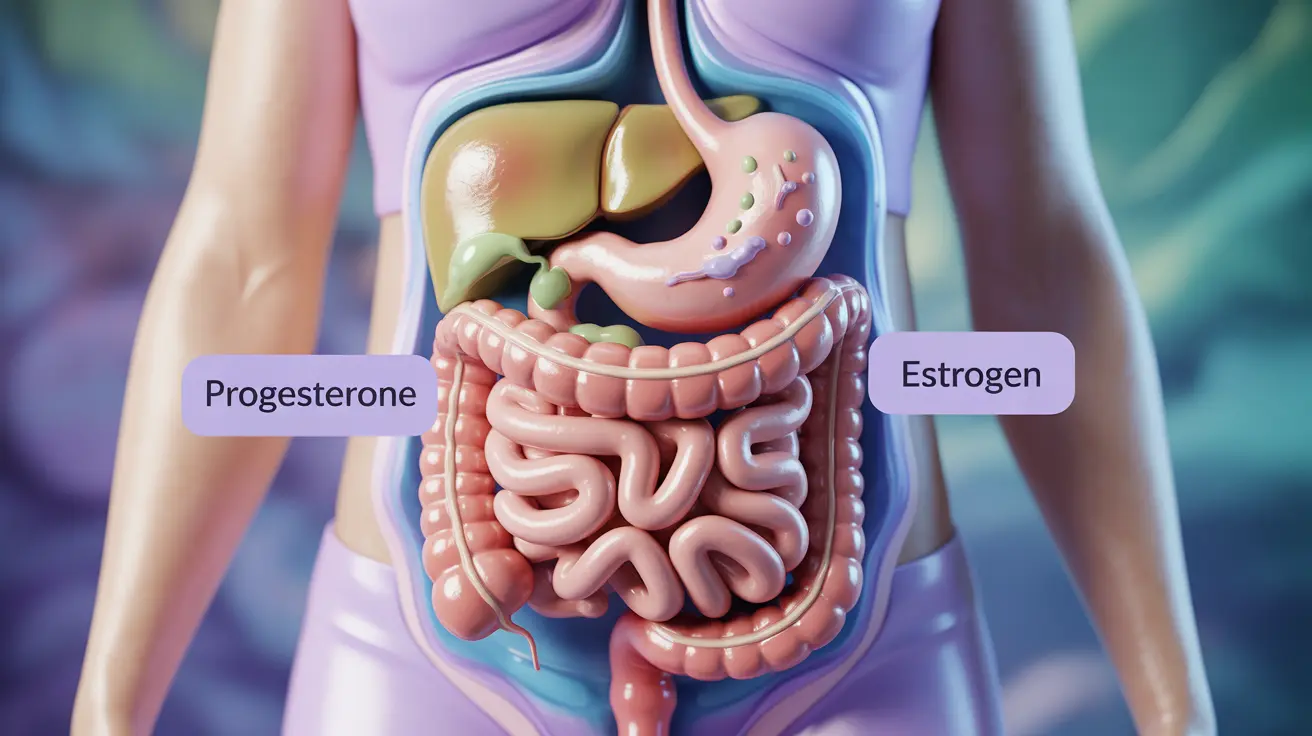Many women experience increased gas and bloating in the days leading up to their menstrual period. These uncomfortable digestive symptoms are a common part of premenstrual syndrome (PMS) and can significantly impact daily comfort. Understanding why these changes occur and how to manage them can help make your premenstrual phase more comfortable.
How Hormones Affect Digestion Before Your Period
The primary reason for increased gassiness before your period relates to hormonal fluctuations. During the luteal phase of your menstrual cycle, both progesterone and estrogen levels change dramatically, affecting your digestive system in several ways:
Progesterone's Impact
Progesterone levels rise significantly before menstruation, which can slow down digestion and cause food to move more slowly through your intestines. This delayed transit time can lead to increased gas production and bloating.
Estrogen's Role
Changes in estrogen levels can affect water retention and influence how your body processes certain foods, potentially contributing to digestive discomfort and increased gas production.
Common Symptoms and Their Duration
Gas-related symptoms typically begin 7-10 days before menstruation and may include:
- Excessive burping
- Increased flatulence
- Abdominal bloating
- Digestive discomfort
- Feeling of fullness
These symptoms usually resolve once menstruation begins or shortly thereafter. However, some women may experience them throughout their period.
Natural Relief Methods
Dietary Adjustments
Making specific dietary changes can help reduce gas and bloating before your period:
- Limit salt intake to reduce water retention
- Avoid gas-producing foods like beans and cruciferous vegetables
- Reduce caffeine and carbonated beverages
- Increase fiber intake gradually
- Stay well-hydrated with water
Physical Activity
Regular exercise can help alleviate gas and bloating by:
- Promoting healthy digestion
- Reducing water retention
- Releasing endorphins that help manage discomfort
- Improving overall gut motility
Stress Management
Stress can worsen digestive symptoms. Consider incorporating stress-reduction techniques such as:
- Yoga or gentle stretching
- Deep breathing exercises
- Meditation
- Regular sleep schedule
When to Consult a Healthcare Provider
While premenstrual gas is usually normal, you should seek medical attention if you experience:
- Severe or debilitating pain
- Significant changes in your typical symptoms
- Persistent bloating that doesn't resolve with your period
- Additional concerning digestive symptoms
Frequently Asked Questions
What causes increased gas and bloating before a period?
Increased gas and bloating before a period are primarily caused by hormonal fluctuations, particularly changes in progesterone and estrogen levels. These hormonal changes can slow digestion and affect how your body processes food and retains water.
How do hormonal changes like progesterone and estrogen affect digestion before menstruation?
Progesterone slows down digestive transit time, while estrogen affects water retention and food processing. Together, these hormonal changes can lead to increased gas production, slower digestion, and bloating during the premenstrual phase.
What are effective natural ways to reduce gassiness and bloating before a period?
Natural remedies include dietary modifications (reducing salt and gas-producing foods), regular exercise, staying hydrated, and stress management techniques like yoga or meditation. Herbal teas like peppermint or ginger may also provide relief.
How long does premenstrual gassiness usually last and when should I see a doctor?
Premenstrual gassiness typically lasts 7-10 days before menstruation and should resolve when your period begins. Consult a doctor if symptoms are severe, persist beyond your period, or are accompanied by severe pain or other concerning symptoms.
Can diet and exercise help manage gas and digestive symptoms before my period?
Yes, maintaining a balanced diet and regular exercise routine can significantly help manage premenstrual gas and digestive symptoms. Focus on whole foods, stay hydrated, and engage in moderate physical activity to support healthy digestion and reduce bloating.




